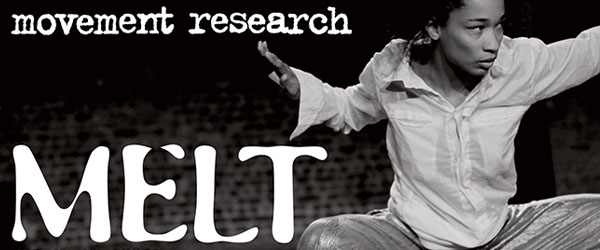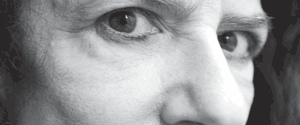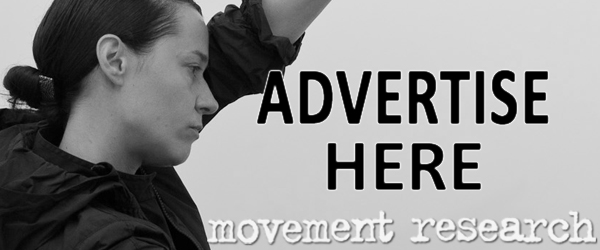Critical Correspondence
- Comments Off on University Project: Mary Cochran, Chair and Artistic Director of the Department of Dance, Barnard College
- University Project
- 7.4.09
University Project: Mary Cochran, Chair and Artistic Director of the Department of Dance, Barnard College
in conversation with Levi Gonzalez
Interview 4.24.09
Levi Gonzalez: Can you tell me about your personal history?
Mary Cochran: It’s a very funny story. I left Juilliard after two days. I joined Nikolais Dance Theater the next day and toured for two years. Not long after that I joined Paul Taylor. I danced for Paul for twelve years. I fell into the academic thing by accident. I was at University of Michigan as a guest artist. One thing led to another and, boom, less than ten years later I became Chair and Artistic Director of the Department of Dance at Barnard College. Even when I was with Paul I produced concerts, was an archivist, taught and did arts administration all along the way. I always knew that I wanted to give back to the dance community.
Levi: The Barnard Project is a program in partnership with Dance Theater Workshop (DTW) where a handful of professional choreographers are commissioned to create new work on the students of Barnard College. The students then perform these works at DTW at the culmination of the project. Can you tell me about the origins and development of this project?
Mary: Next year it will be our fifth year, which is cool. It was a year out before we started it that I met with Cathy [Edwards – former Artistic Director of DTW]. I believe that was the summer of 2003. Basically I walked in, had a meeting with Cathy and said, “I love DTW. What can I do for you?”
I had been in California for a couple of years teaching at Mills College. I hadn’t seen the new space yet. I remember performing there as a young professional. I was probably 19 years old when I first danced there. I was so impressed with the new space when Cathy gave me a tour. I’ve always loved everything that DTW stood for and still stands for. I knew I would have some resources and wanted to see what we could do together with those resources. Very simple idea, nothing fancy. So Cathy said, “Well, what about this?” And I said, “That’s perfect!”
Since then it’s developed in the sense that the process of production gets smoother and smoother. I think more artists are really interested in being involved in it which is great. I also think because we are so connected to the downtown community there are these tendrils that branch out from the project. One student worked with Reggie Wilson, and before she graduated she worked for him in management and then she started dancing for his company. There are so many of these interesting stories. That’s just one example. Some artists come back. Reggie was interested in mentoring Nora [Chipaumire] this year. It’s a beautiful, multiply verdant situation. And a lot of times, there’s a sense of camaraderie between the different people who’ve done it over the years. I think anything we can do to encourage a sense of community and sharing… that sounds really Californian… an interest in other people’s aesthetics, not feeling that “only this way is right”, is very positive.
My vision is really practical – which is “What can I do with what I have to help support the field?” AND I have confidence in the fact that anything that I do to support the field will totally enrich the students’ experience. I don’t feel there’s a conflict there at all. It is not an either/or situation, its an and/and.
Levi: Sugar Salon is a residency which provides free rehearsal space, artistic mentorship, a stipend and a performance opportunity specifically for female choreographers. What is the relationship of this program to Barnard?
Mary: Marissa Beatty was one of the founders of WAX and a Barnard alum. A bunch of my students who knew her said we should meet. So we basically had martinis and said, “Let’s do this thing!”
We provide rehearsal space, a summer artists colony right here in NYC, money, a professional production for their new work and a possible connection to the Barnard Project or the option to make work on the students in another venue. The more I do these things the more I realize everything is connected. Sugar Salon artists have not necessarily been involved with the Barnard Project but a lot of Sugar Salon artists are DTW artists, like luciana [achugar] or Yanira [Castro] or Ivy [Baldwin].
We’ve done three cycles of Sugar Salon and we are going to do a fourth. We’ve been trying to do more and more with less. So the program grows even if the resources don’t necessarily. This last cycle was really successful. But at this moment we’ve been pushed back in time a bit, so we’ll wait before we do another one. Holding steady at this point is a good thing. I was thinking about the economy and this American idea that you have to get bigger and bigger and bigger. Maybe its better that if you’re doing a good thing you keep doing it, and inspire other people. End of story.
Levi: How do you see these programs influencing the larger field, in both the University system and the art world?
Mary: The Barnard Project was an inspiration for other things at DTW and other things across the country. It’s important for people to see what can be done. The College Partnership Program was an inspiration from this project. I think they are trying to develop more partnerships, such as the one with Maggie Allesee National Center for Choreography (MANCC). I’m working with MANCC now as well which is great. We are all connected here. I would love to have a three-way partnership with DTW, MANCC, and Barnard.
Lots of people are thinking this way in Universities. There’s nothing unique about what I’m doing though I may be more artist-oriented and less “academic” than some people.
Like I said, I’m really practical and intuitive in my thinking. I really like to connect with people like Cathy or Carla [Peterson – current Artistic Director of DTW] and think how I can be part of the solution. It’s also feels really great to me when I can offer an artist something and they feel like it helps them grow and supports their career. Very simple.


